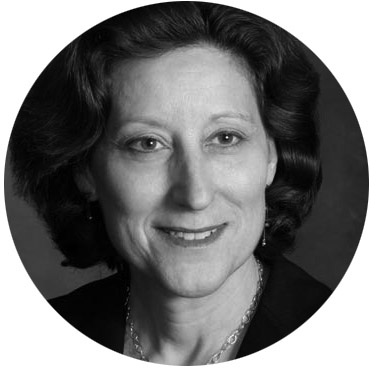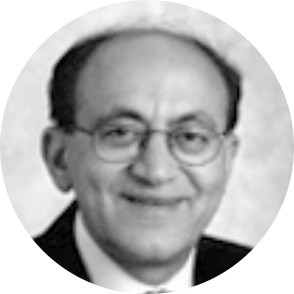Medical and Scientific Advisors
The SynDevRx Scientific Advisory Board consists of world-renowned oncologists, clinical trial researchers and academic researchers whose collective expertise spans drug development, MetAP2 biology, oncology, metabo-oncology and angiogenesis.
The board members play a very hands-on role in our drug development program and clinical trials, offering crucial guidance on clinical trial strategy and design, indication selection, biomarker identification and end-point definition.

Bruce R. Zetter, Ph.D.
Chairman of the Scientific Advisory Board (SAB)
Dr. Zetter is an international leader in cancer research who has served as a consultant or scientific advisory board member with over 30 biotechnology and pharmaceutical companies.
Dr. Zetter has been the Charles Nowiszewski Professor in the departments of Cell Biology and Surgery at Harvard Medical School since 2000 and conducts research at Boston Children’s Hospital, where he served as vice president of research and chief scientific officer from 2004 to 2008. His numerous national and international awards for his work in the field of cancer research include a Faculty Research Award from the American Cancer Society, a Creativity Award from the Prostate Cancer Foundation and two MERIT awards from the U.S. National Cancer Institute.
In addition to publishing 150+ research papers, Dr. Zetter has served on the editorial boards of 11 peer-reviewed journals and given 300+ lectures to universities, conferences and businesses. He has also served as an expert witness for the U.S. Senate Cancer Coalition hearings in Washington and in court cases involving health and biotechnology.
Dr. Zetter received his Ph.D. from the University of Rhode Island and completed postdoctoral fellowships at MIT and the Salk Institute in San Diego.

Hope S. Rugo, M.D.
Senior Medical Advisor
Dr. Hope S. Rugo is a medical oncologist and hematologist at UCSF specializing in breast cancer research and treatment. A Clinical Professor of Medicine, Dr. Rugo joined the Breast Care Center in 1999 after a decade of experience at UCSF in malignant hematology and bone marrow transplantation for a variety of diseases, including breast cancer. She entered the field of breast cancer in order to incorporate novel therapies based on an understanding of the biology of cancer with excellent quality of care into the treatment of women with breast cancer.
Dr. Rugo is the Director of the Breast Oncology Clinical Trials Program, and is the principal investigator of multiple clinical trials focusing on combining novel targeted therapeutics with standard treatment to improve the treatment of both early and late stage breast cancer. In addition, Dr. Rugo is working on studies to evaluate novel ways to reduce toxicity from therapy. She is an active member of the national cooperative group, CALGB, and a is a founding member of the Breast Cancer Research Consortium, as well as serving as an investigator in the UCSF Breast SPORE (the Bay Area Specialized Program of Research Excellence in Breast Cancer). Dr. Rugo teaches medical students and physicians, and regularly lectures locally, nationally and internationally on subjects relating to the treatment of breast cancer.

Andrew Dannenberg, M.D.
Medical Advisor (and SAB)
Dr. Dannenberg was the founding director of the Weill Cornell Cancer Center. He has authored 200+ scientific articles and edited several books and journals. Dr. Dannenberg’s team was the first to show that obesity causes an inflammatory state with related molecular changes in the human breast. More recently, he focused on the relationship between metabolic obesity and increased risk of cancer among normal weight postmenopausal women.
Dr. Dannenberg received his medical degree from Washington University in St. Louis and served as a medical resident and fellow at New York Hospital/Cornell Medical Center. He is a member of the Association of American Physicians, the American Society for Clinical Investigation, and the American Association for Cancer Research. In 2011, he was awarded the American Association for Cancer Research/Prevent Cancer Foundation award for excellence in cancer prevention research.

Emily J. Gallagher, MD, PhD
Medical Advisor (and SAB)
Dr. Gallagher earned her MB BCh BAO (MD equivalent) with honors from University College Dublin, Ireland and her PhD in Physiology from the Royal College of Surgeons of Ireland. She is a member of the Royal College of Physicians of Ireland (MRCPI), is Board Certified in Internal Medicine and Endocrinology. Dr. Gallagher trained in Internal Medicine and Endocrinology at the Mater Miseriordiae University Hospital, Dublin, and completed her postgraduate training in Internal Medicine and Endocrinology at Mount Sinai. She was Chief Fellow in Endocrinology, and was subsequently appointed Assistant Professor of Medicine Endocrinology, Diabetes and Bone Diseases. In 2017 she received a Mount Sinai Department of Medicine Junior Faculty Translational Collaborative Research Pilot Award to study the mechanisms underlying the development of endocrine immune related adverse events in oncology patients treated with immune checkpoint inhibitors. Her main research and clinical interests lie in understanding the links between obesity, type 2 diabetes and cancer, specifically the roles of hyperinsulinemia and hyperlipidemia.

Roy S. Herbst, M.D., Ph.D.
Medical Advisor (and SAB)
Dr. Herbst is recognized for his leadership and expertise in lung cancer treatment and research. His work involves developmental therapeutics and the personalized therapy of non-small cell lung cancer, in particular the process of linking genetic abnormalities of cancer cells to novel therapies. He is the Ensign Professor of Medicine (Medical Oncology) and Professor of Pharmacology, chief of medical oncology, Yale Cancer Center and Smilow Cancer Hospital at Yale-New Haven; the associate director for translational research, Yale Cancer Center; and the translational working group leader, Thoracic Oncology Program, Yale Cancer Center.
As a member of the American Association for Cancer Research (AACR), Dr. Herbst has chaired the Tobacco Task Force as well as the American Society of Clinical Oncology and the Institute of Medicine’s National Cancer Policy Forum. Currently a fellow of the American College of Physicians, he has also been a vice chair of the Southwest Oncology Group’s lung committee, a member of the medical advisory committee for the Lung Cancer Research Foundation and chair of the communications committee for the International Association for the Study of Lung Cancer. He has authored 200+ peer-reviewed papers and has current grant funding for his work from sources including the National Cancer Institute, AACR and multiple charitable foundations.
After receiving B.S. and M.S. degrees from Yale University, Dr. Herbst earned his M.D. at Cornell University Medical College and his Ph.D. in molecular cell biology at The Rockefeller University. His postgraduate training included an internship and residency in medicine at Brigham and Women’s Hospital, and he completed his clinical fellowships in medicine and hematology at the Dana-Farber Cancer Institute and Brigham and Women’s Hospital, respectively. Most recently, he completed an M.S. degree in clinical translational research at Harvard University.

Donald E. Ingber, M.D., Ph.D.
A pioneer in the field of biologically inspired engineering, Dr. Ingber has authored 400+ publications, is a named inventor on 125 patents, has founded four companies and has been a guest speaker at 450+ events internationally.
Dr. Ingber is the founding director of the Wyss Institute for Biologically Inspired Engineering at Harvard University, the Judah Folkman Professor of Vascular Biology at Harvard Medical School and the Vascular Biology Program at Boston Children’s Hospital, and professor of bioengineering at the Harvard John A. Paulson School of Engineering and Applied Sciences. At the Wyss Institute, he leads a multifaceted effort to develop breakthrough bioinspired technologies to advance healthcare and improve sustainability. His work has led to advances in mechanobiology, tumor angiogenesis, tissue engineering, systems biology, nanobiotechnology and translational medicine.
Dr. Ingber is a member of the National Academy of Medicine, the National Academy of Inventors, the American Institute for Medical and Biological Engineering, and the American Academy of Arts and Sciences. He was named one of the Top 20 Translational Researchers worldwide in 2012 (Nature Biotechnology journal) and a Leading Global Thinker of 2015 (Foreign Policy magazine). In addition, he has received honors in a broad range of disciplines, including the Robert A. Pritzker Award and the Shu Chien Award from the Biomedical Engineering Society, the Rous Whipple Award from the American Society for Investigative Pathology, the Lifetime Achievement Award from the Society of In Vitro Biology, the Leading Edge Award from the Society of Toxicology, and the Department of Defense Breast Cancer Innovator Award.
Among Dr. Ingber’s most recently developed technologies: an anticoagulant surface coating for medical devices that replaces the need for dangerous blood-thinning drugs; a dialysis-like sepsis therapeutic device that clears blood of pathogens and inflammatory toxins; a shear stress-activated nanotherapeutic that targets clot-busting drugs to sites of vascular occlusion; and human organs-on-chips created with microchip manufacturing methods and lined by living human cells, which are being used to replace animal testing as an in vitro platform for drug development and personalized medicine. In 2015, Dr. Ingber’s organs-on-chips technology was named Design of the Year by the London Design Museum and was also acquired by the Museum of Modern Art in New York City for its permanent design collection.
Dr. Ingber received his B.A., M.A., M.Phil., M.D. and Ph.D. from Yale University.

Rakesh K. Jain, Ph.D.
Dr. Jain is the Andrew Werk Cook Professor of Radiation Oncology (Tumor Biology) at Massachusetts General Hospital in the Harvard Medical School and the director of the E.L. Steele Laboratories for Tumor Biology at Mass General. His research findings have been summarized in 600+ publications.
He serves or has served on advisory panels to government, industry and academia, and is a member of editorial advisory boards of 22 journals, including Nature Reviews Cancer and Nature Reviews Clinical Oncology. The recipient of more than 75 awards from engineering and medical professional societies/institutions, he is a member of the American Academy of Arts and Sciences and all three branches of the U.S. National Academies — the National Academy of Medicine, the National Academy of Engineering and the National Academy of Sciences.
In 2014, Dr. Jain was chosen as one of 50 Oncology Luminaries on the occasion of the 50th anniversary of the American Society of Clinical Oncology. In 2015, he received his B.Tech in chemical engineering from the Indian Institute of Technology (Kanpur, India) and his M.S. and Ph.D. in chemical engineering from the University of Delaware.

Joyce O'Shaughnessy, M.D.
Medical Advisor
Joyce A. O’Shaughnessy, M.D. specializes in medical oncology with board certification in both internal medicine as well as medical oncology. She is a Diplomate of the American Board of Internal Medicine with subspecialty certification in medical oncology. Dr. O’Shaughnessy focuses on breast cancer prevention and treatment. She is Co-Chair of Breast Cancer Research and Chair of Breast Cancer Prevention Research at Baylor-Sammons Cancer Center and for The US Oncology Network and is a member of the Scientific Advisory Board for US Oncology Research Network. Dr. O’Shaughnessy received her M.D. from Yale University Medical School. Her internship and residency in internal medicine were completed at Massachusetts General Hospital in 1985. She concluded a fellowship in medical oncology at the National Cancer Institute in 1987 and was a Senior Investigator there until 1995.

Daniel D. Von Hoff, M.D., FACP, FAACR, FASCO
Medical Advisor (and SAB)
Dr. Von Hoff is the physician in chief, distinguished professor at the Translational Genomics Research Institute. Previously, he served as chief scientific officer for HonorHealth Clinical Research Institute, medical director of research at US Oncology Research (supported by McKesson Specialty Health) and professor of medicine at the Mayo Clinic in Scottsdale, Ariz.
Dr. Von Hoff’s major interest is the development of new anticancer agents, both in the clinic and the laboratory. He and his colleagues were involved in the beginning of the development of many FDA-approved agents that are now used routinely, including mitoxantrone, fludarabine, paclitaxel, docetaxel, gemcitabine, irinotecan, nelarabine, capecitabine, lapatinib, vismodegib, nab-paclitaxel and nal-IRI. His clinical trial work has led to the approval of three of the four drugs approved by the FDA for treatment of patients with advanced pancreatic cancer. Presently, he and his colleagues are concentrating on the development of molecularly targeted therapies, particularly for patients with advanced pancreatic cancer.
Dr. Von Hoff is a founder of ILEX Oncology, which was acquired by Genzyme after two ILEX agents, alemtuzumab and clofarabine, were approved by the FDA for patients with leukemia. He has published upwards of 675 papers, 140 book chapters and 1,170 abstracts.
Dr. Von Hoff is the past president of the American Association for Cancer Research (AACR), a fellow of the American College of Physicians, and a member and past board member of the American Society of Clinical Oncology (ASCO). He is founder and editor emeritus of Investigational New Drugs – The Journal of New Anticancer Agents, past editor-in-chief of Molecular Cancer Therapeutics and a co-founder of the AACR/ASCO Methods in Clinical Trial Cancer Research Workshop.
From 2004 to 2010, Dr. Von Hoff served on President George W. Bush’s National Cancer Advisory Board. He received the David A. Karnofsky Memorial Award from the ASCO for his outstanding contributions to cancer research leading to significant improvement in patient care in 2010.
After graduating cum laude from Carroll University, Dr. Von Hoff earned his M.D. from Columbia University College of Physicians and Surgeons. He completed his internship and residency in internal medicine at the University of California, San Francisco, and a medical oncology fellowship at the National Cancer Institute. He then moved to the University of Texas Health Science Center at San Antonio, where he rose to professor in the Department of Medicine and the Department of Cellular and Structural Biology. In 1989 he became founding director of the Institute for Drug Development at the Cancer Therapy and Research Center in San Antonio. In 1999 he became director of the Cancer Center and professor of medicine at the University of Arizona.
Prostate Cancer Medical Advisory Board
The Company has recently announced the formation of its Prostate Cancer Medical Advisory Board (PCMAB), comprised of key opinion leaders and industry experts in clinical oncology research and prostate cancer patient care. The Board’s overarching goal is to inform the development of SynDevRx’s lead drug candidate, SDX-7320, to target the link between metabolic dysfunction and prostate cancer treatment outcomes.
Dr. Bruce Zetter, PhD, an expert in prostate cancer research, will serve as the chair of the PCMAB.
Bruce R. Zetter, PhD, (Chair of SynDevRx SAB) is the Charles Nowiszewski Professor of Cancer Biology in the Department of Surgery at Children’s Hospital, Boston, Harvard Medical School. His research focuses on understanding how prostate cancer cells disseminate and gain metastatic potential. Joining Dr. Zetter on the PCMAB are:
• Dr. Philip Kantoff, MD, Chairman of the Department of Medicine at Memorial Sloan Kettering Cancer Center (MSKCC) in New York, where he studies the mechanisms of treatment resistance in prostate cancer patients. He also is a member of the Prostate Cancer Foundation Board.
• Dr. David Nanus, MD, Mark W. Pasmantier Professor of Hematology and Oncology in Medicine, Weill Cornell Medical College, where he conducts clinical and basic research focused on molecular abnormalities related to the development and treatment of genitourinary cancers.
• Dr. Ganesh Palapattu, MD, George F. and Sandy G. Valassis Professor and Chair of Urology at the University of Michigan, Ann Arbor, where he uses metabolic platforms to study the biological basis of disparities related to prostate cancer.
• Dr. Raoul Concepcion, MD, Director of The Comprehensive Prostate Center in Nashville, Tennessee, as well as the Chief Urologic Officer for Integra Connect in West Palm Beach, Florida, and luminary medical educator.
